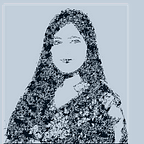Ibn Khaldun: How to Look At Past
A 14th-century North-African scholar of Islam explained ways of seeing the past and learning from it…
What is history? A screenshot of events in time? Not so fast.
In A Brief History of History, Colin Wells lays out how we have come to know and study history.
History is not simply a playback of all the stuff that happened in the past. We come to know and not know about the past through those that remember, record, analyze, write and store events. History is never objective, but always dependent on the selective memories, records, collections, organization, presentation of information, and many a times whims and whams of those who make it to our understanding of history.
Probably, the first person to note and identify this difference was a small-town boy of 14th century living in North Africa. Ibn Khaldun, who has been described as the founder of the modern disciplines of historiography, sociology, economics, and demography.
His magnum opus, the Muqaddimah is one of the first systematic study of history which basically founded the discipline of historiography as we know it today. The Muqaddima (Prolegomena) is a long theoretical consideration of the laws of history as well as a general survey of Islamic societies and their arts and sciences.
A brain-twister: we know about Ibn Khaldun being the founder of the discipline of history because that is where our snapshots of people who studied history stop. It can be possible that there were others who might have founded the discipline but we don’t know or hear about them or have records about them.
Here is an excerpt from Ibn Khaldun: An Intellectual Biography by Robert Irwin
The first question posed in the Muqaddima is why do historians make mistakes? Three things lead to error in writing history. First, partisanship. Secondly, gullibility. Thirdly, ignorance of what is intrinsically possible. It was this third issue that first and foremost he sought to address, since earlier chroniclers had not given any serious consideration to the general laws that govern the formation and dissolution of human societies. They had not studied the batin (the interior meaning) of history, but were only compilers of the zahir (its externals). Ibn Khaldun scrutinized accounts of past events and sought to assess them on the grounds of plausibility. One needed to take account of cause and effect, then how things work when the situations are similar, and then how things work when the situations are dissimilar. This was an unusual thing for an Islamic historian to do.
Most accounts of ‘Islamic history’ for example are less of history and more of Islamic. When a religion arises in some place or time, it not only impacts its culture, society, norms, and customs but also its history. Did Odyssey actually happen? Did a man called Shakespeare write tragic plays? Did Shah Jahan really make Taj Mahal for his wife?
How do we know these things?
That is where the contributions of Ibn Khaldun become apparent. He microscoped Islamic history with the tools, techniques, and methods of historians independently of the narrative of Islam about its own history.
